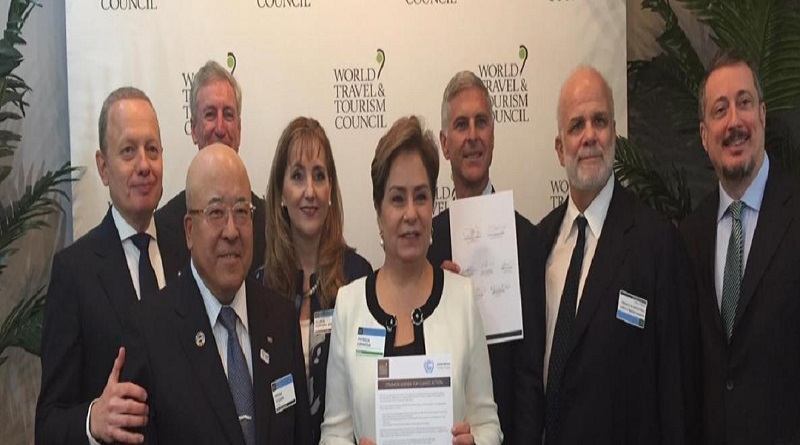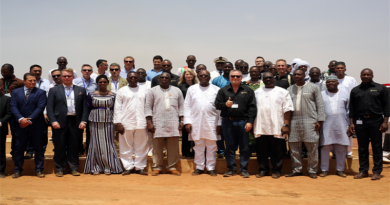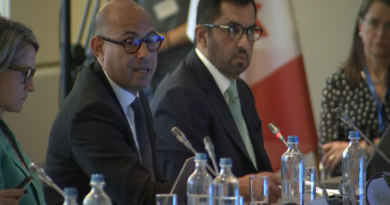World Travel, Tourism industry commit to Climate Neutral Now
The World Travel and Tourism Council (WTTC) has signed up to the United Nations Climate Neutral Now initiative with a pledge to measure its greenhouse gas emissions, reduce what it can and offset the rest, while promoting the same climate-friendly regimen to its 150 members worldwide.
This pledge adds momentum to global climate action taken by organizations, companies, events and individuals to limit the average global temperature rise to 1.5 degrees Celsius above pre-industrial levels, in line with the goals of the Paris Climate Change Agreement.
Travel and tourism generates just over 10% of global GDP and plays a crucial role in climate change. WTTC supports 313 million jobs in this industry and seeks to reduce 50% of total travel and tourism carbon emissions by 2035.
During the this year’s WTTC Global Summit, WTTC announced a partnership with UN Climate Change and agreed on a common agenda for climate action in travel and tourism.
The Executive Secretary of UN Climate Change Patricia Espinosa said: “We recognize that Travel and Tourism has a huge role to play in addressing climate change. While climate change itself poses significant risks to some tourism destinations, in many of the most high-risk areas, tourism can provide opportunities for communities to build resilience to its impacts.”
As part of the commitment, WTTC will compile the best sustainability practices in the travel and tourism sector and encourage companies to set science-based targets.
Chris Nassetta, WTTC Chair and CEO of Hilton said: “Building on the global scientific consensus around decarbonization efforts that came out of the 2015 Paris Climate Agreement and WTTC’s subsequent call for the dialogue on carbon to turn to science-based targets, now it is time to turn that dialogue into action.”
To push for sustainable growth in tourism, WTTC has initiated the “Tourism For Tomorrow” awards to encourage companies to do business in an environmentally-friendly way. This involves a wide range of activities such as investments in green technologies, development of environmental policies, and strategies to address climate change.
Here are 10 categories of climate action in the travel and tourism industry in which stakeholders have demonstrated inspiring leadership:
• Supplying sustainably sourced food:
The Accor Hotel chain grows its own vegetables, on site, at many of its hotels.
Soneva Group in South East Asia also grows organic food to serve its guests 15,000kg of produce per year, worth 48,000 USD.
Virgin Atlantic has worked with the Sustainable Restaurant Association (SRA) to create the world’s first framework designed to address the sustainability challenges of inflight catering.
• Using renewable energy
Xanterra Parks & Resorts powers its Ohio park with a 10kilowatt wind turbine and uses electric vehicles to transport guests and laundry.
• Using sustainability dashboards
Many companies now use a dashboard monitoring system to measure carbon emissions and energy usage. In March 2017, EarthCheck launched the Global Sustainable Tourism Dashboard to gather information on global tourism and sustainable development. Their clients operate across 70 countries in more than 30 tourism sectors.
• Improving technology
The Climate Neutral Group and its partners developed Carmacal, a tourism oriented businessto-business carbon calculator able to provide carbon footprints for complete holiday and travel packages.
Cruise Lines International Association (CLIA) now paints its ship hulls with nontoxic coatings to reduce fuel consumption by up to five percent. In addition the association uses LED lights, higher efficiency appliances and solar panel installations to provide emissions-free energy.
• Reducing water usage and waste
Chepu Adventures Ecolodge in Chile displays resource usage, and challenges customers to use maximum amounts of water and energy per person with tablet screens in each room.
• Using electric vehicles and alternative fuel
Many large car rental companies now offer electric and hybrid vehicles as a standard. Enterprise Renta-Car established the Institute for Renewable Fuels which works towards the advancement of alternative fuels and clean technologies.
• Offsetting from large corporations
Marriott has committed 2 million USD to preserve the Juma reserve in Brazil’s Amazon rainforest.
Over 30 International Air Transport Association (IATA) member airlines have introduced an offset program either in their websales engines or through a third party offset provider.
• Using cycling options for transport
Paradisus Playa del Carmen, run by Meliá Hotels International encourages the use of bicycles among its staff and has improved its local community’s access to wellbeing facilities through donating a bike path and a sports park. Many other hotels also offer free bike hire to encourage guests to travel sustainably.
• Building infrastructure with sustainable materials and low-impact designs
InterContinental San Francisco is a LEED Goldcertified hotel with about 2 million gallons of water saved each year from low-flow faucets and toilets, as well as other water-reduction features.
The Zetter Hotel in London used sustainably sourced building materials and is controlled by an intelligent building management system.
• Protecting local environment and enhancing biodiversity
Misool resort in Indonesia has established an 828 sq km ‘No take zone’ where all fishing, shark finning, and harvesting of turtle eggs and shellfish are prohibited. As a result, fish biomass has increased by over 250% in the last six years, and in some areas, the increase has been over 600%.
Over the last 17 years, Biosphere Expeditions has delivered over 150,000 hours of voluntourism, wildlife conservation and research, helping projects such as the Kavango Zambezi Transfrontier Conservation Area.
As part of the “Common Agenda For Climate Action”, the WTTC engagement with the UN Climate Change, Global Climate Action will be showcased in a Travel & Tourism event at the upcoming COP24 in Katowice, Poland.



